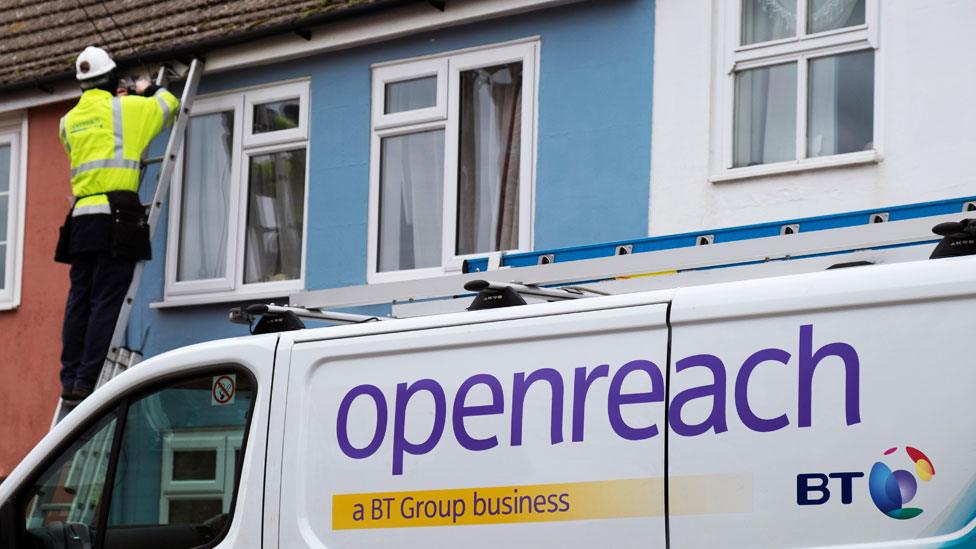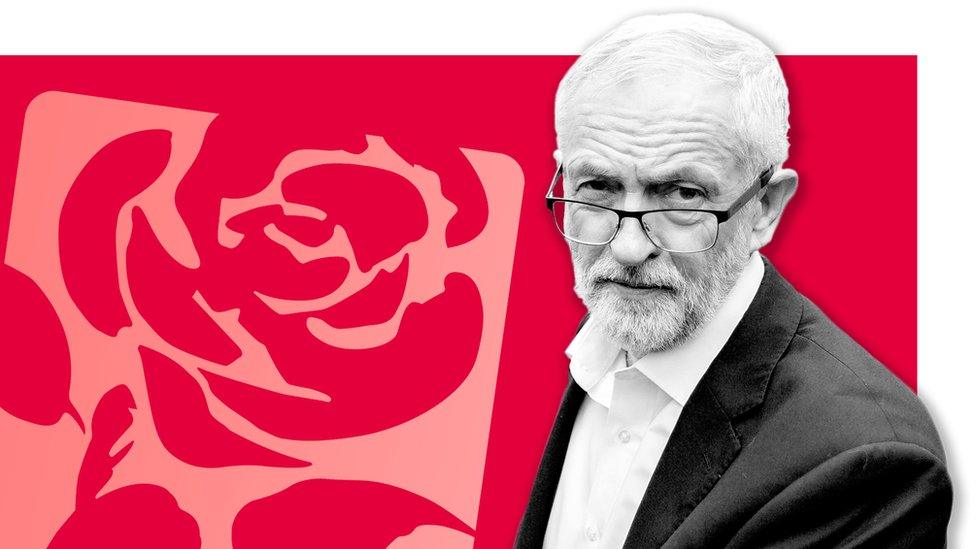Why does Labour want to give away free broadband?
- Published

The Labour Party is pledging to bring broadband internet under the control of Westminster
Whereas Margaret Thatcher recast the privatisations of the 1980s into share giveaways that popularised mass participation capitalism to some voters, this Labour move seeks to do the exact reverse, nearly four decades on.
It is an attempt to turn state ownership into an election-friendly retail policy: free broadband for all.
It is really two policies in one. The theory behind nationalisation has traditionally been about industrial policy - the government taking a view on the strategic direction of the economy.
This move is more than that - shifting the state into the provision of what is known as "universal basic services". Formerly thought of as health and education, now Labour wants to add broadband too.
Since the early 1980s, even before BT was privatised, and the internet existed, Labour politicians have argued for a national Government roll out of fibre optic connections.
The UK led the world in this technology, but it was not quickly commercialised here, partly because successive Governments chose to prioritise competition from slow copper cables, and we now lag behind many countries.
Shadow chancellor John McDonnell is seeking to correct this by running fibre broadband provision from Government by buying parts of BT. Under his new approach to borrowing such a transaction would not affect the public finances - the billions in extra borrowing would be offset by the value of the asset - the new British Broadband company.
Other countries such as South Korea or Portugal were similarly statist but still relied on the private sector telecoms companies to deliver the plans.
Mr McDonnell believes this would be a massive subsidy to the private sector, hence the part-renationalisation of BT.
This state control of the telecom's backend infrastructure is not even the really radical part of his policy.
Insisting that the consumer provision of broadband is both state-owned, and free, is, very radical, and unproven.
Essentially Labour has taken an industrial policy of the state providing the digital infrastructure of the future, and layered on top of it marketing free broadband for all to voters.
It's an attempt to meld populism to statism, but it relies on voters giving even more trust in politicians, at a time where there seems to be very little.
- Published15 November 2019

- Published14 November 2019

- Published20 August 2018

